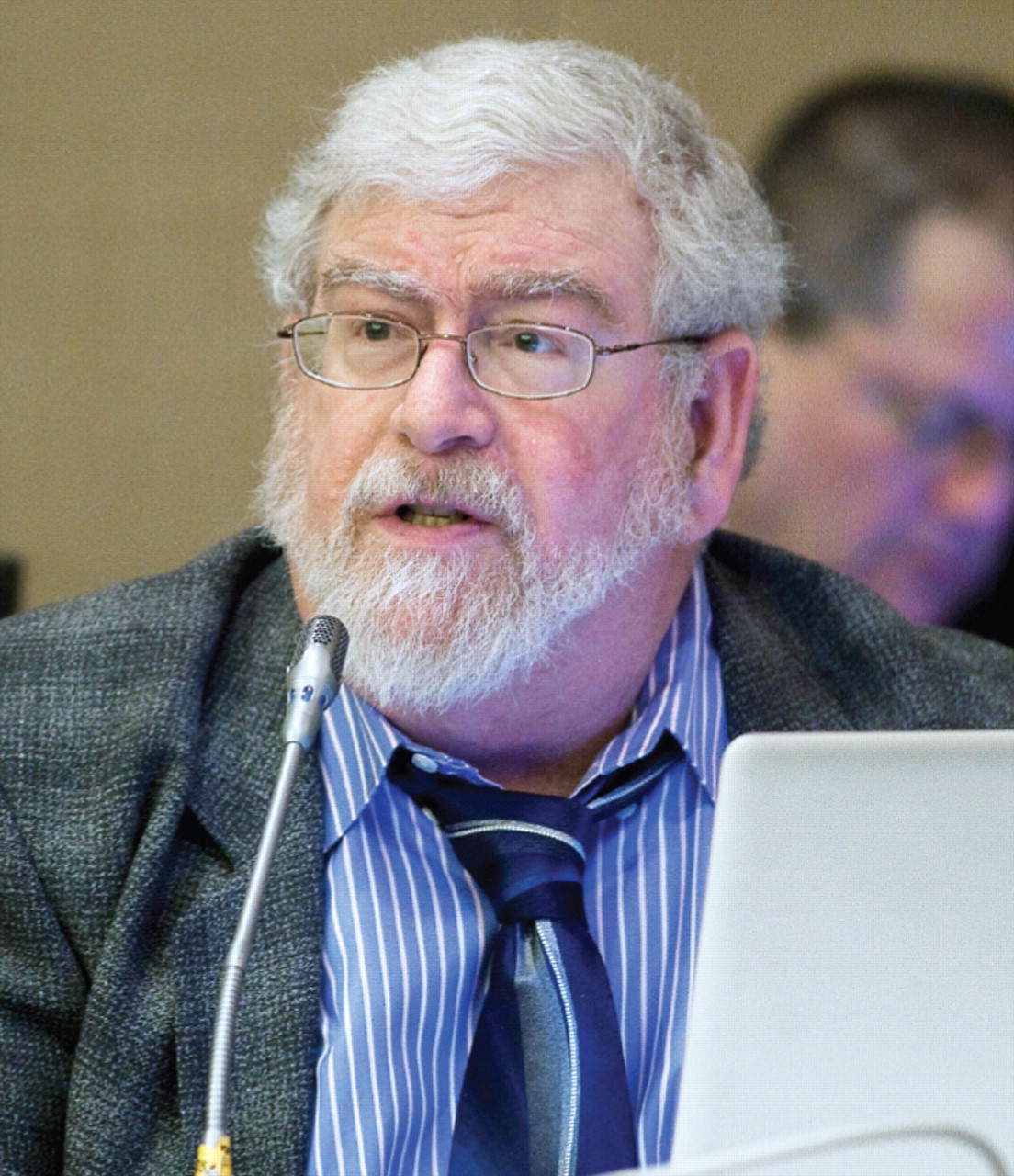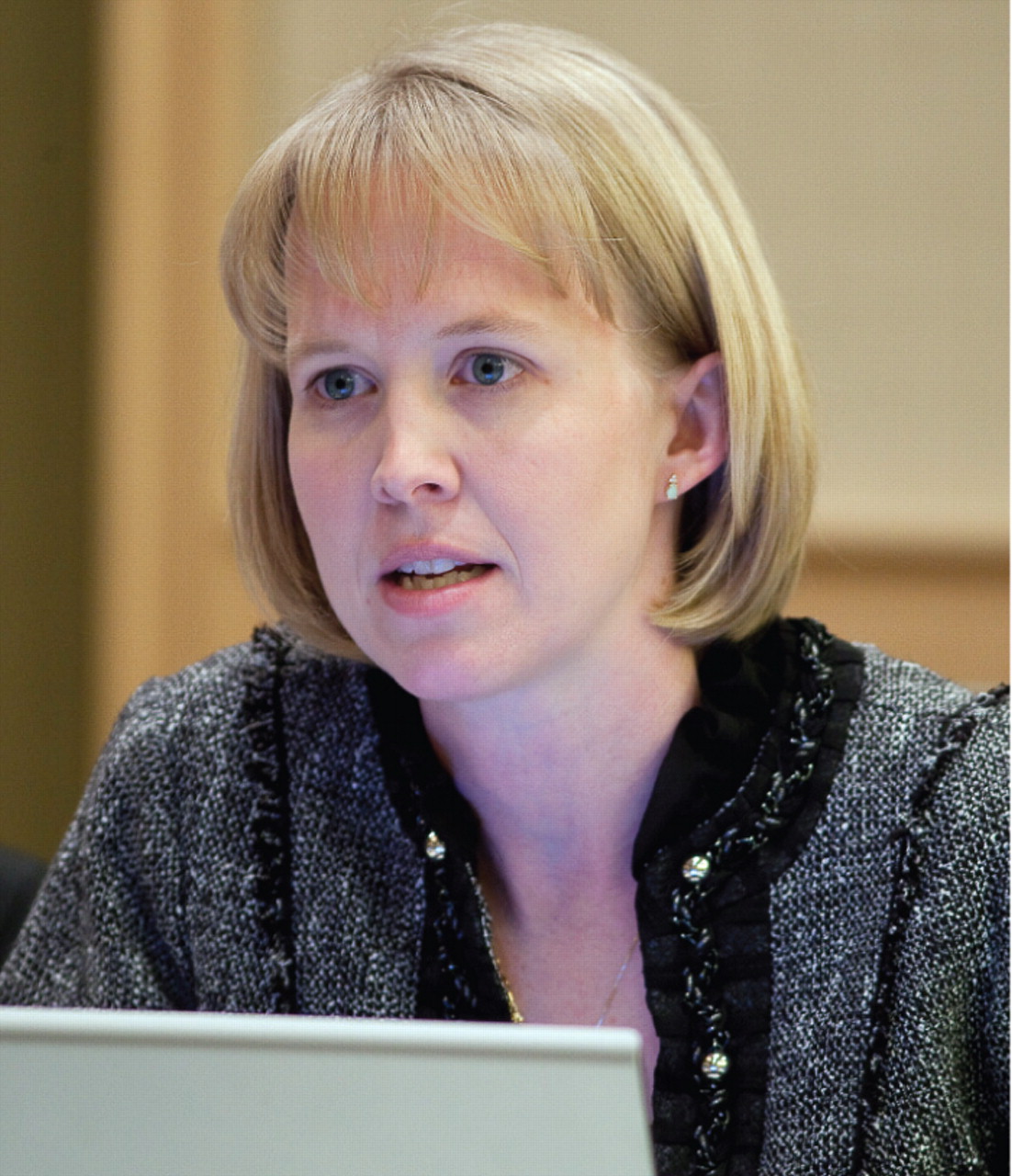Board Will Help Members Navigate Practice Changes
Abstract
Two critical areas in which practicing psychiatrists will soon see substantial changes—the shift to electronic health records and implementation of standards for maintenance of certification—were prominent on the agenda at the APA Board of Trustees meeting last month in Arlington, Va.
Several trustees acknowledged that many psychiatrists are expressing confusion over how to go about choosing the most appropriate electronic health record (EHR) system for their practice in the near future and are hoping that APA will do more to help in that decision-making process. The need to provide members with more information on these new systems was said to be especially great for psychiatrists in solo or small-group practices.

Area 6 Trustee Marc Graff, M.D., discusses the role APA can play in educating members about how to evaluate and choose an electronic health record system for their practice.
Trustees debated how APA and its Committee on Electronic Health Records could best assist members in choosing an EHR system, but Area 6 Trustee Marc Graff, M.D., a member of that committee, noted that the committee did not think it was a good idea, or even possible, for APA to select one system to recommend that would best meet members' practice needs. The companies that have developed such systems for medical practices tend to be small, Graff said, and thus their survival down the road is a question mark as more and larger software vendors enter the marketplace. He suggested that at this time, general guidance from APA and a list of questions to ask potential vendors would be more valuable to members.
APA Treasurer David Fassler, M.D., proposed a motion stating that APA should explore working with EHR system vendors to facilitate development of systems that are designed specifically for psychiatric practices. He noted that the ability of APA to offer guidance in this area would be a vital member benefit. The Board approved this motion.
Maintenance of Certification Discussed
Meeting requirements for maintenance of certification (MOC) is also on the horizon, and as APA Medical Director James H. Scully Jr., M.D., pointed out at the meeting, “they will change the way medicine is practiced.”
MOC criteria will apply to all physicians, but psychiatrists are troubled in particular about the requirement that they, as other physicians, will have to obtain feedback from patients on the care those patients received from the clinician. This feedback must be obtained three times in 10 years from five patients each time. Many psychiatrists are concerned by the way this process could alter their therapeutic relationship with patients.
The Board adopted a proposal introduced by former APA President (and interim editor in chief of Psychiatric News) Carolyn Robinowitz, M.D., to establish a work group to address issues concerning MOC requirements, which were developed by the ABMS and will be overseen by the ABPN. The work group will help determine what educational materials APA should develop to assist members with MOC-related concerns and how members can fulfill the requirements. The work group will also develop a strategy to ensure that members are aware of what APA is doing on their behalf in this realm, including a mechanism by which they can provide feedback on MOC concerns to APA leaders.
Minority-Group Rep Added to Board

Area 7 Trustee William Womack, M.D., explains the proposal developed by a work group he co-chaired to add a trustee position that would be chosen by members of APA's minority/under- represented group caucuses.
At several of its recent meetings, the Board has debated options for including a new trustee position for a psychiatrist from the seven minority and underrepresented (M/UR) groups that APA recognizes and how that person would be chosen. At last month's meeting, Board members voted to add an M/UR trustee who would have a two-year term and be eligible for one reelection. The new position replaces a nonvoting Board seat that until 2009 was designated for the chair of the Committee of Black Psychiatrists (see See also: New Trustee Position Enhances Minority Participation).
Candidates for the new M/UR trustee position will be selected solely by members of the M/UR caucuses. Candidates must be members of a M/UR caucus to be eligible for nomination. Each caucus will set up a committee to vet potential candidates and submit one name to the M/UR committee. The M/UR committee will then narrow the list of seven potential nominees down to two candidates and one alternate and forward those names to the APA Nominating Committee, which submits a list of all candidates to the Board of Trustees. This change to the composition of the Board of Trustees will require a change to APA Bylaws before it can be implemented.
Trustees Address Membership Issues
On a membership-related proposal, the Board voted that beginning with the 2012 dues year, membership will be terminated for those who are not on a scheduled payment plan or who have not paid their dues in full by June 30 of the applicable dues year. Trustees also agreed to extend from three months to four months—that is, through October 31—the administrative reinstatement period during which lapsed members will be reinstated in APA if they pay their dues in full.
On another membership matter, the Board rejected by one vote a proposal from the Membership Committee to change fellowship eligibility criteria. That committee had proposed that a member who was board certified and had been a general member for five consecutive years would automatically become an APA fellow without having to fulfill the current criterion of submitting two letters in support of his or her nomination for fellowship.

Joyce Spurgeon, M.D., the Board's early career psychiatrist (ECP) trustee, urges Board members to support creation of a database that would allow ECPs in APA leadership positions to communicate more efficiently with each other.
Another criterion for automatic elevation to fellowship was that the member's district branch did not raise an objection “based on ethical standards.” Several Board members, however, thought that the objection criterion was too vague, since it didn't specify whether an ethics complaint must have been filed for a district branch to object to fellowship status or, if one had been filed, in what stage of the ethics-hearing process the complaint had to be. At the Board's urging, Membership Committee Chair Joseph Rubin, M.D., agreed that committee members would discuss this issue with the district branches.
A key segment of its membership on which APA has focused in the last few years is early career psychiatrists (ECPs). One issue that has been of concern to the ECPs who are active in APA leadership and on components is the difficulty they have in communicating with each other. To remedy that, at the request of ECP Trustee-at-Large Joyce Spurgeon, M.D., the Board approved creation of a database that will allow these ECPs to access the e-mail addresses of ECP colleagues in their Area. The Board also agreed to increase the number of advertisements for the meeting of the ECP Caucus at the APA annual meeting and provide other information explaining “that this caucus is the best way to meet the ECP leaders of your local area” as well as those who are active in APA leadership.
The Board also approved a membership-related change to APA's Operations Manual regarding licensure. The manual will now state, “If a state licensing board rescinds/revokes a member's license to practice medicine because of unethical conduct or unethical practice for cause, the member loses his/her membership in APA no matter what his/her membership status may be at the time.”
In addition to these actions, the Board approved APA's 2011 operating budget. Details of the budget are posted on APA's Web site at <www.psych.org/Departments/Finance/FinanceInfo_1/2007BudgetSummary.aspx?FT=.pdf>. A summary of actions will be posted in the Members Corner section of APA's Web site at <www.psych.org>.



